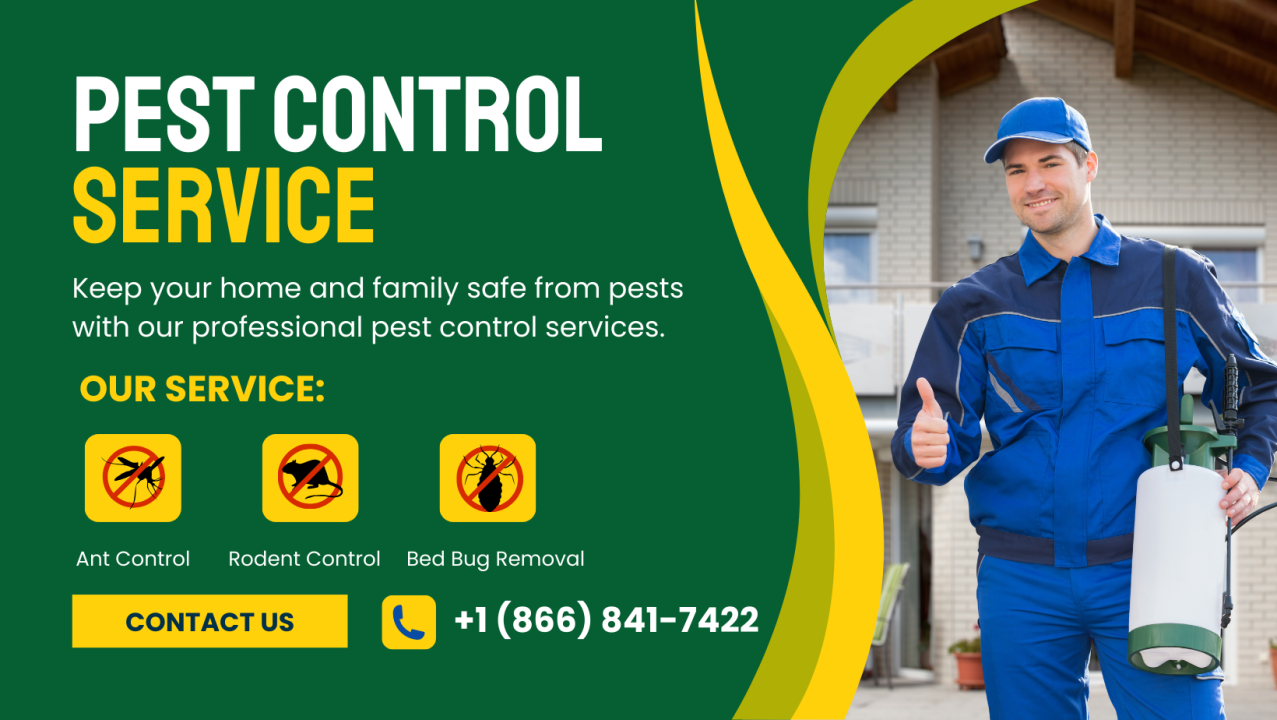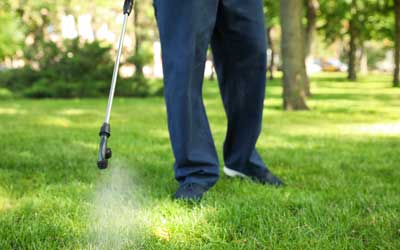Understanding the Various Strategies to Insect Control: A Comprehensive Guide

All-natural Parasite Control Approaches
Using eco-friendly methods such as friend planting and biological pest control is essential for successfully handling insects in farming setups. Buddy planting involves growing different crops in proximity to prevent parasites, improve nutrient uptake, and boost overall crop wellness. For example, growing marigolds along with tomatoes can assist push back nematodes. Intercropping maize with legumes can interrupt the reproduction patterns of insects like corn borers.
Biological insect control entails presenting natural predators or microorganisms to manage pest populations. Ladybugs, as an example, feed on aphids, managing their numbers without the demand for chemical pesticides. One more example is using Bacillus thuringiensis (Bt), a microorganism that targets specific insect bugs while being safe to people, pets, and advantageous insects.
These environment-friendly techniques not only decrease the reliance on artificial chemicals but likewise help maintain biodiversity and soil health and wellness. By including natural parasite control strategies into agricultural practices, farmers can achieve lasting bug management while decreasing adverse effect on the environment.

Chemical Bug Control Solutions
In enhancement to all-natural insect control approaches, the usage of chemical parasite control remedies plays a significant role in properly managing pest populations in farming atmospheres. Chemical pest control services are formulated to target specific parasites that might create extensive damages to plants. These solutions frequently contain synthetic pesticides that are created to get rid of insects promptly and efficiently.
Among the essential advantages of chemical pest control solutions is their performance in managing parasite invasions on a big scale. Farmers can use these remedies making use of various methods such as splashing, airing out, or seed treatment to safeguard their plants from damaging pests, weeds, and diseases. Additionally, chemical insect control options are relatively very easy to use and can give quick outcomes, helping farmers safeguard their returns and reduce economic losses.
Nevertheless, it is important to use chemical bug control remedies sensibly to lessen possible negative influence on the atmosphere, non-target organisms, and human health. Proper application methods, adherence to safety and security guidelines, and regular monitoring are critical to make certain the responsible use chemical parasite control remedies in agricultural methods.
Biological Parasite Control Approaches
Organic pest control comes close to take advantage of all-natural predators or microorganisms to take care of bug populations in agricultural setups successfully. This method offers a eco-friendly and sustainable solution to pest management, lowering the dependence on artificial chemicals and decreasing harm to the setting. One common organic control method is the introduction of all-natural enemies, such as ladybugs or parasitical wasps, to target certain parasites. These killers prey on the insects, helping to manage their populations naturally - pest control clovis.
Another organic control method entails making use of microorganisms like fungis, infections, or bacteria to infect and kill pests. These microbial agents can be sprayed on plants or presented right into the soil to deal with numerous bugs without damaging beneficial bugs or various other wildlife. Furthermore, making use of scents to disrupt the mating patterns of parasites is another reliable organic control strategy. By disrupting their recreation, this method assists that site to minimize pest populaces without the requirement for chemical treatment. Overall, biological pest control approaches provide a lasting and targeted remedy to pest monitoring in farming.
Integrated Insect Management (IPM)
Integrated Parasite Management (IPM) is an extensive technique that incorporates numerous parasite control techniques to properly manage and minimize pest populaces in farming systems. IPM focuses on long-lasting avoidance of insects through a combination of organic, social, physical, and chemical control techniques. By incorporating these various strategies, IPM intends to reduce reliance on chemical pesticides, decrease ecological influence, and promote lasting insect administration techniques.
One trick aspect of IPM is the use of biological controls such as all-natural predators, parasites, and microorganisms to regulate insect populaces. This approach takes advantage of the power of nature to keep a balance in between parasites and their natural adversaries sites without triggering damage to the setting.
Additionally, IPM entails social methods like plant rotation, environment, and sanitation control to produce unfavorable conditions for parasites and disrupt their life process. Physical controls such as catches, obstacles, and mulches are also made use of to prevent parasite infestations.
Mechanical and Physical Pest Control Strategies
Utilizing non-chemical methods, such as physical and mechanical bug control strategies, is an essential facet of thorough pest management approaches, constructing upon the structure of Integrated Pest Monitoring's all natural technique. Mechanical insect control entails making use of physical obstacles or traps to protect against insects from accessing and harming plants or frameworks. This technique can include methods like setting up displays on windows, using row covers in agriculture, or using sticky catches to capture insects.
Physical parasite control methods, on the other hand, emphasis on directly eliminating insects via physical ways. Utilizing warm therapies to eliminate bed pests or vacuuming up parasites like crawlers or ants can be efficient ways to manage problems without the usage of chemicals. By incorporating these mechanical and physical pest control methods into an Integrated Bug Management strategy, individuals and experts can lower dependence on pesticides while important source still effectively reducing and taking care of pest populaces damages.
Conclusion

In enhancement to natural bug control methods, the application of chemical bug control options plays a significant duty in properly managing pest populaces in agricultural settings.One of the vital benefits of chemical pest control services is their effectiveness in managing parasite invasions on a large scale.Integrated Insect Administration (IPM) is a detailed technique that combines various pest control techniques to efficiently take care of and reduce pest populations in agricultural systems.Utilizing non-chemical methods, such as mechanical and physical parasite control methods, is a critical facet of thorough bug management methods, developing upon the structure of Integrated Parasite Management's all natural method. By incorporating these physical and mechanical bug control methods into an Integrated Pest Administration plan, specialists and people can minimize dependence on chemicals while still efficiently minimizing and managing pest populaces damages.